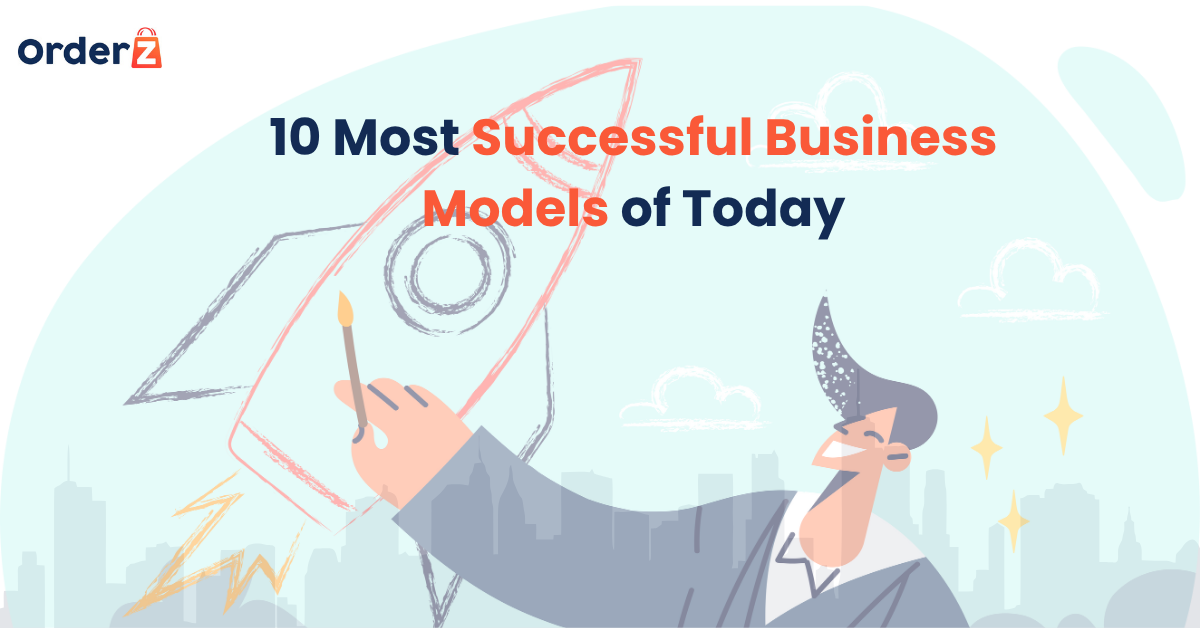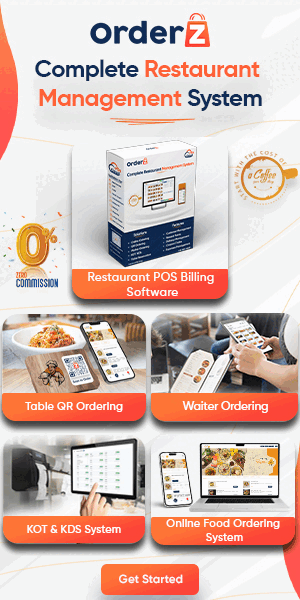The world is evolving daily, and time is fast changing, particularly in the business world. So, having a great business idea or concept doesn’t bring you success. You can attain it only when you adopt some business models that best fit your business needs, market conditions as well as your customers’ satisfaction.
In this article, we will explore the Top 10 most successful business models of today. We will take a look at the business models that have given success in today’s business world.
Are you an entrepreneur confused about choosing business models? Are you a businessman looking forward to staying ahead in business growth? This article will provide you the answer with valuable insights into the key factors of business success.
Why a Business Model is important?

A successful business model is a plan or approach that a business uses to create value in the marketplace. It defines the main agenda of a business, such as the products or services offered, the target market, the distribution channels, and the revenue generation.
It is the one that enables a company to generate sustained profits and achieve long-term growth. At the same time, the business model satisfies the customer’s needs and keeps your business staying ahead of the competition.
It should be adaptable to changing market conditions and customer demands. It also should not affect the company’s mission and vision at any cost.
Benefits of having a successful business model

Having a business model gives you various benefits to your business growth. Here, we can discuss a few of them.
- Improved Profit – A successful business model can help a company to have a sustainable profit through the services or products you provide to the customers, based on their needs.
- Flexible to market – A prosperous business model can make a company more adaptable or flexible to market conditions. It also allows you to do course corrections in between to satisfy your customers.
- Competitive Spirit – Having a solid business model helps you have great business growth among the heavy competition. This is possible only because of the reason that your business model serves the needs of your customer at its best.
- Quick decision-making – A clear-cut business model will help you get the precise framework or plan for your business. Ultimately, This helps you make the correct decision. It makes you pick up an effective choice for your business path as well.
Apart from the above benefits, it also has other benefits as increased customer satisfaction and better resource allocation.
10 Best Business Models to have a Successful Business.
Business models are broadly divided into 4 types B2B, B2C, C2C, and Direct selling. But considering the evolution of the business world, we can also divide it into various business models or concepts as follows
- ECommerce Model
- Subscription-based Service Model
- Platform-based Service Model
- Freemium Model
- Pay-Per-Use Model
- Franchise Model
- Direct sales Model
- Traditional Retail Model
- Business-to-Business (B2B) Model
- Hybrid Model
#1 ECommerce.

An e-commerce business model is a type of business model that focuses on buying and selling products online. This involves the use of an e-commerce platform. That platform can be a website or mobile app, to facilitate online transactions between buyers and sellers. Eg. Amazon etc.
Within this eCommerce business model, there are several divisions we can segregate as
- B2B (Business-to-Business) – sells products directly to individual customers
- B2C (Business-to-Customer) – sells products to other businesses
- C2C (Customer-to-Customer) – An individual consumer sells products to another consumer, often through any third-party involvement
- Marketplace – sells products through a third-party platform on a commission basis.
#2 Subscription-based Service.

A subscription-based service business model is a type of business model in which customers pay a fee to access a product or service. This service is provided only for a certain period. It can be monthly or annually, depending on the platform.
This model is often used for digital services, such as streaming platforms like OTT apps. Take the example of Netflix or Hotstar. Here, you will watch the programs or movies by subscribing to that service for a certain period. But, it is also important that this business model can be applied to physical products.
#3 Platform-based Service.

A platform-based service business model is a type of business model that establishes the connection between multiple parties. It is often done through a digital platform like a web app or mobile app.
This model is used in a variety of industries such as transportation, lodging, e-commerce, etc.
The best examples of this are,
- Uber – between drivers and customers.
- Amazon – between sellers and buyers.
- Oyo – between hotel owners and users.
#4 Freemium business.

This word can be separated as Free and Premium. Hence, these two words are combined and compounded as FREEMIUM. By this time, some of you would have understood that it’s a combination of free service and premium service.
To explain it with an example, take a well-known platform Spotify. This is a platform that is widely used to listen to music and podcasts. At free of cost, any person with Spotify account can listen to music and podcasts. But if they want to listen to them without any ads or any interference, they have to subscribe to the premium plan by paying some amount.
So, these types of businesses come under this freemium business model. Other examples are LinkedIn, YouTube, etc.
#5 Pay-Per-Use.

The Pay-Per-Use business model is a type of business model where customers will pay only for the products that they used. This business model is commonly used in cloud computing platforms.
To be simple, imagine that you book a taxi or cab to go somewhere. For that, you will book a cab or taxi. Then, take a ride to reach the destination. At last, you will pay the price only for the distance you traveled. Rather than, paying the price for the distance covered by that cab for the whole day.
It is as simple as that. You will pay for whatever you use. An example of this business model is Amazon Web Services (AWS).
#6 Franchise.

This is a type of business model in which a company (Franchisor) gives the rights to operate a business under its name and use its business model to another company (Franchisee)
Here the franchisee pays some initial amount for using the franchisor’s business name and idea. Then they will also pay ongoing fees for accessing the resources that are provided by the franchisor.
The business which operates under this business model is McDonald’s and Subway. Both these food companies apply this business model.
#7 Direct Sales.

The direct sales business model is a method of selling products or services directly to consumers. This can be done through some salespersons who are ready to work on a commission basis.
In this model, the company sells products or services to the representatives at first. Then, he will in turn sell them to customers. This is completely different from traditional retail models, where the company sells directly to customers through its stores or websites.
An example of this is sales businesses like Amway.
#8 Traditional Retail.

This is also the same as the direct sales method. But the only difference here is, there is no need for the salesperson in between to sell the products. Eg. Grocery shops etc.
The manufacturers will have some physical marketplaces or stores where they will directly sell their products to the customers.
This is the conventional way of doing business that has been followed for so long. But, after the emergence of eCommerce platforms. More and more business people opt for going online to sell their products.
#9 Business-to-Business.

The B2B (business-to-business) business model refers to a business transaction where one business sells products or services to another business. This involves more complexity, compared to B2C (business-to-consumer) business models.
The best example of this business model is IBM, which gives services to other businesses or governments.
#10 Hybrid Model.

It is a business model which is formed as new after two or more business models are combined. The hybrid business model is used to meet the requirements of customers as well as the needs of your businesses.
This has a huge advantage as different business models collaborate into one. It has a more effective and efficient business approach, altogether.
The best example of this business model is Amazon Web Services which operates in the concept of pay-per-use as well as the freemium business model.
Conclusion.
Although there are various business models in today’s world, the above business models are considered the most successful ones. The E-Commerce platform stands on top of all other business models. As the survey says that more and more businesses adopt online selling techniques nowadays, it is better to bring your business online with OrderZ.
This article has covered the overview of the 10 most successful business models in today’s world. We hope you would have taken away a lot from this blog. We wish you all the best in your business journey.r



